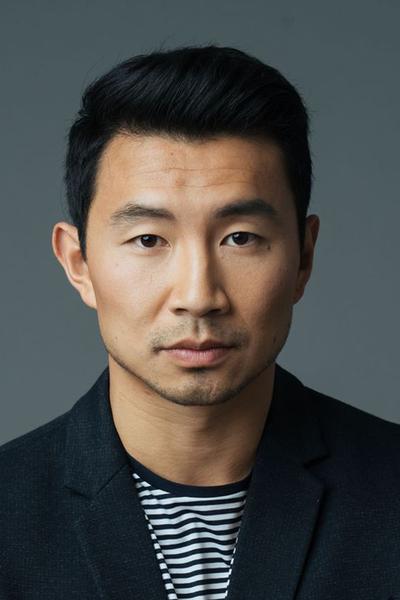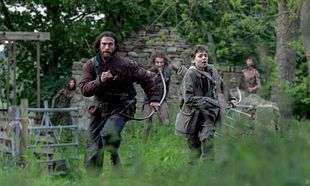Having run away from his terrorist overlord father Wenwu (Tony Leung), 'Shawn' / Shang-Chi (Simu Liu) lives a carefree life in San Francisco with his friend Katy (Awkwafina). However, when Wenwu sends his henchmen to bring him back to him, Shang-Chi must confront the past he's tried to bury...
What's kept Marvel as the only show in town for blockbusters is that it cleanly picks from other genres, takes in what it needs, and then drops the rest over the side. 'Black Widow' was a 'Mission: Impossible'-style action spectacular. 'Ant-Man and the Wasp' was a buddy-cop romp. 'Spider-Man: Homecoming' was like a John Hughes movie with more explosions. Even something like 'Captain America: The Winter Soldier' was reaching for '70s conspiracy thrillers alá 'Three Days of the Condor'. With 'Shang-Chi and the Legend of the Ten Rings', Marvel and director Destin Daniel Cretton are blending together two distinctive formulas - the martial arts comedy stylings of Jackie Chan and Stephen Chow, and the family dramedy.
Simu Liu is the perfect choice to embody both of these in the role of Shang-Chi. His work on 'Kim's Convenience' means that he's firmly able to grasp the slacker comedy vibe that the movie frequently gives off, while also being able to grasp the intricacies of a character that is torn between eastern and western ideas of family, grief, and duty. As to the question of whether he can handle the action, that question is answered in the movie's opening bus battle sequence - which is only barely touched upon in the movie's trailers and promotional material. Indeed, 'Shang-Chi and the Legend of the Ten Rings' has some of the best fight sequences yet in Marveldom, with the help of the late Brad Allan, who was the first non-Asian member of the Jackie Chan Stunt Team.
The fists fly in flurries of action and the comedic spin on them, particularly one setpiece set on a scaffolding that is interrupted by a karaoke rendition of 'Hotel California', works a treat. Director Destin Daniel Cretton, though he previously worked on indie darlings like 'Short Term 12' and 'Just Mercy', proves more than equal to the task of making a crowd-pleasing blockbuster, but gives it an emotional core. This is where Tony Leung comes in, and truly gives 'Shang-Chi and the Legend of the Ten Rings' that weight it needs to be more than just a trifling spectacle. His whole raison d'etre, if you strip away all the fantastical elements, is one that's truly heartbreaking and explores the idea of grief and loss in a family dynamic. Leung is able to build up a resevoir of emotions, and even when he and Simu Liu face off to do battle, there's a solid raison d'etre. Neither has been willing to confront the other because the pain both feel is too great to comprehend.
Compared to 'Black Panther' on this front, 'Shang-Chi and the Legend of the Ten Rings' both achieve the goal of creating an understandable villain. As well as this, they're both the first of their kind in the Marvel Cinematic Universe. Shang-Chi was, in the comics, a painfully outdated character borne out of the kung fu craze of the '70s. Yet, 'Shang-Chi' and 'Black Panther' differentiate themselves on key points. In 'Black Panther', Michael B. Jordan's Killmonger was warped by his past and vengeful of the privilege that Black Panther enjoyed. In 'Shang-Chi', Tony Leung's Wenwu reaches out to bring his son back to the past, while Simu Liu's Shang-Chi has neglected it and rejected his privilege to lead a life of his own choosing.
By turns poignant and entertaining, frantic and considered, 'Shang-Chi and The Legend of the Ten Rings' is another enjoyable addition to the Marvel Cinematic Universe.



















































































